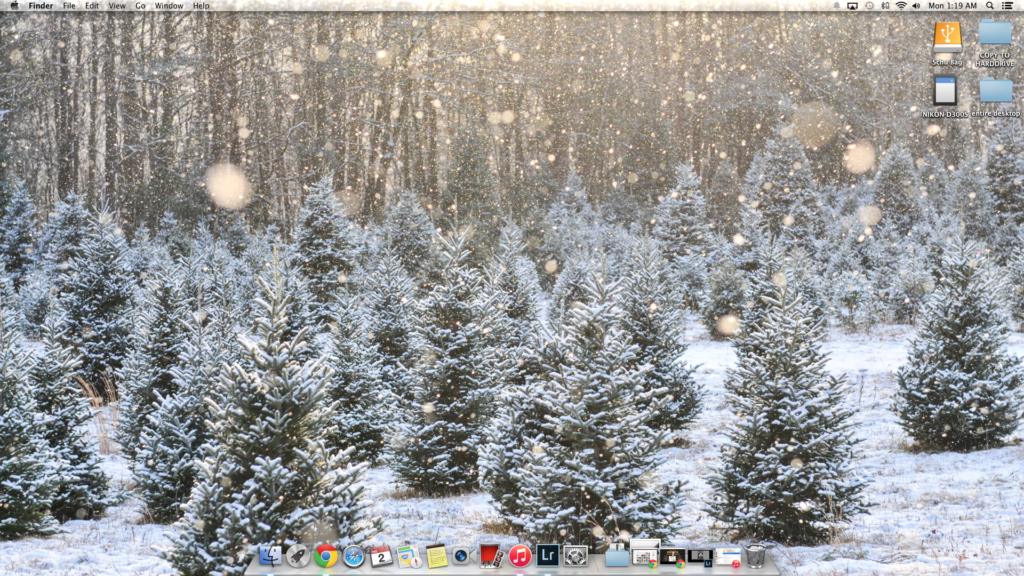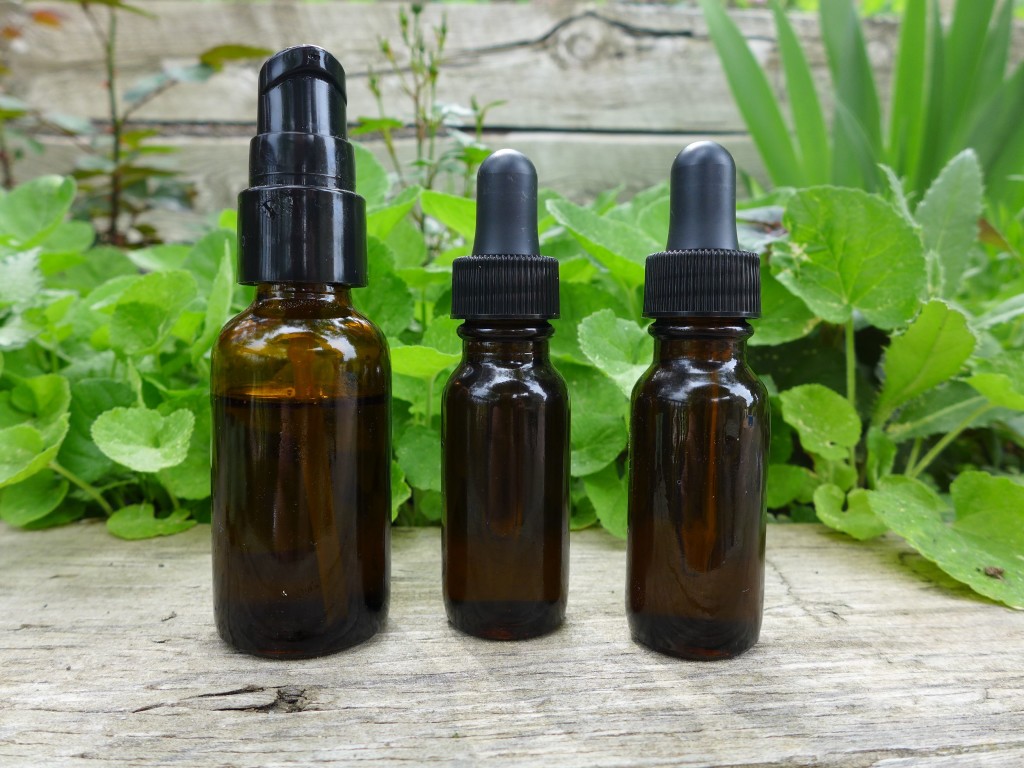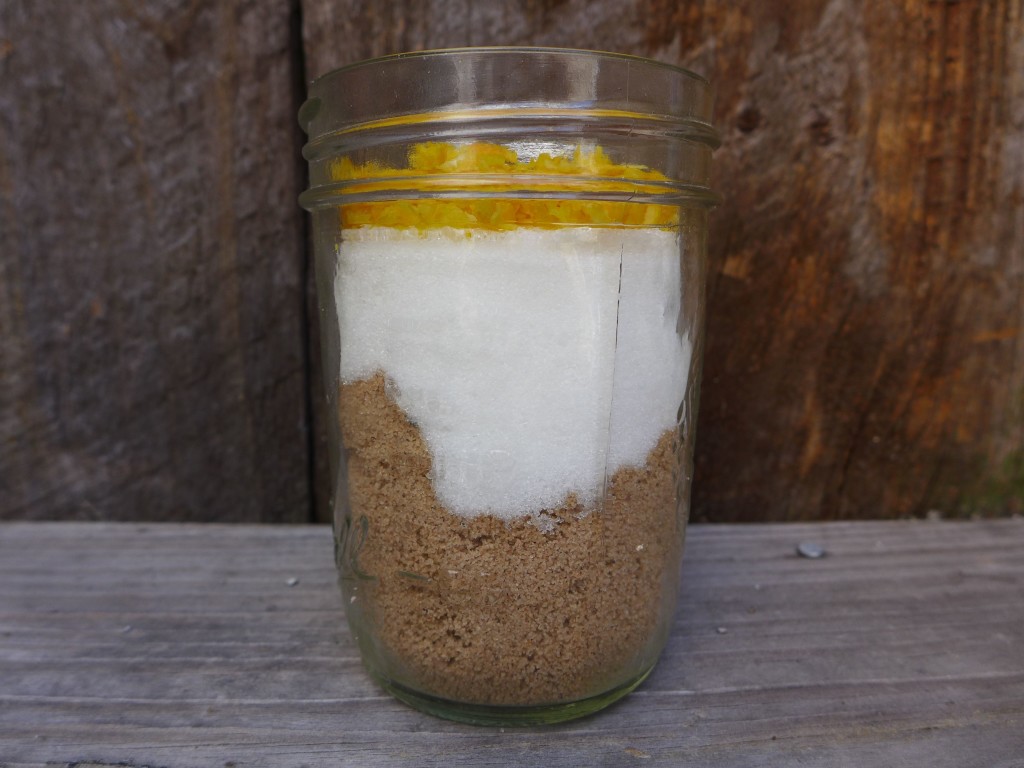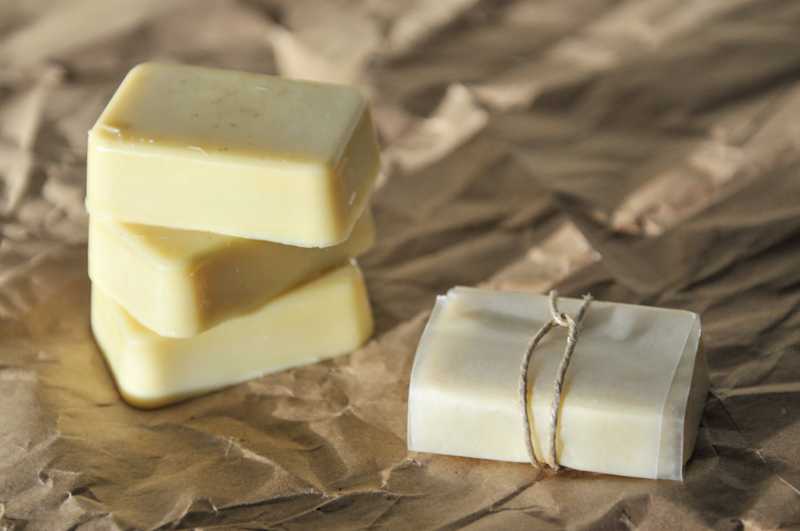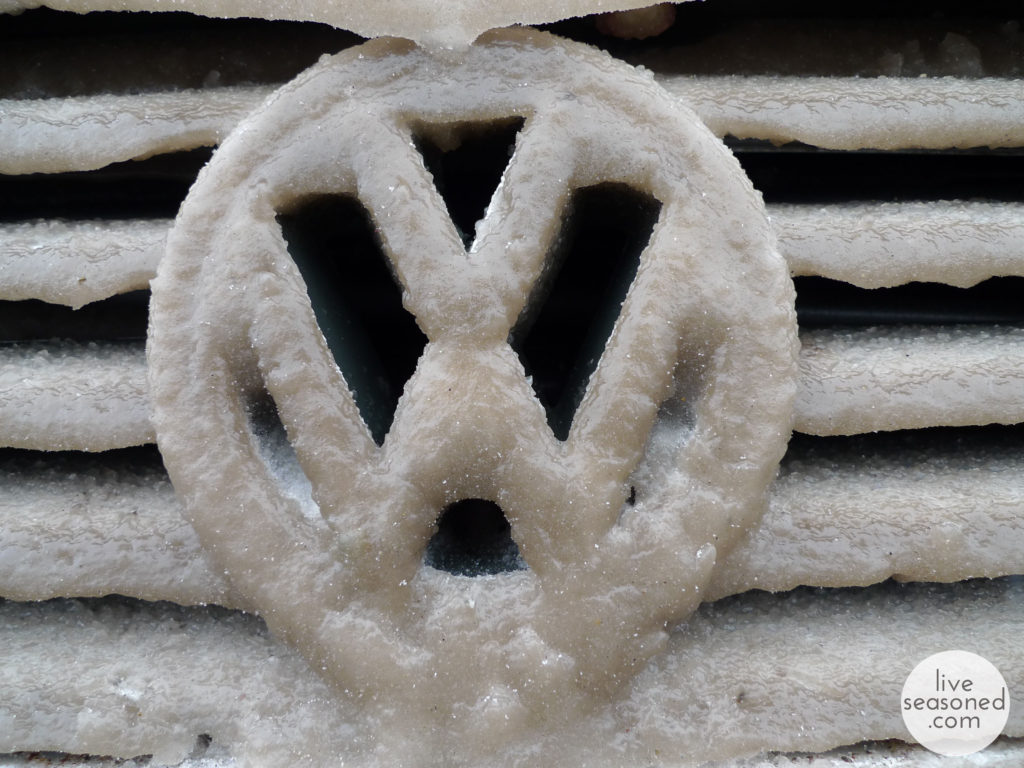
Has winter arrived at your place yet? Here in North Carolina, we had our first major snow and probably the biggest snow of the season. It was a heavy, wet snow, and we have lots of clean up to do this coming week. Besides clearing downed trees, this early (for us) snow reminded me to prepare for winter with a little winter car maintenance. Is this a part of your yearly routine? Kind of like spring cleaning?
Growing up in Pennsylvania, there was always this shift some time at the end of October where you add a blanket, jug of water, ice scraper, and a few other necessities to your trunk. You never knew when a snowstorm or black ice would show up in our middle-of-nowhere mountainous region. Over the years, I’ve formulated a little winter car maintenance routine. I usually mark this on my calendar and give myself a week or two to check off all ten items on the list.
Protect Your Exterior
Now’s the time to scrub away last season’s buildup from your vehicle’s exterior. It’s good to then apply a quality car wax to protect against the impending barrage of snow and road salt.
Change Your Oil
Hopefully, you’re changing your oil regularly. We have a sister who didn’t realize you needed oil changes on new cars, hah! Besides regular oil changes, before winter is a good time to switch from conventional to synthetic. Synthetic oil flows freer at lower temperatures and doesn’t require any time to warm up, which is crucial and immediate protection for your engine’s moving parts. If your car isn’t suited for full-synthetic, ask your mechanic if you can switch to a blend. Definitely, check the recommendations for your specific make and model.
Maintain Your Battery
Summer heat tends to take a toll on batteries, you probably won’t notice the weakness until the first really cold morning, when your battery fails to start. Prepare your battery for winter by having it tested and if need be charged. If it needs to be replaced, put it on the to-do list.
Another thing to note, if you live in an especially cold climate and you rarely use your vehicle, you may want to keep your battery attached to a maintainer. Basically, your battery is working harder in cold weather and will gradually lose power over time if it isn’t in use.
Check Your Lights
Of course, it’s important to see, but it’s also really important to be seen, especially in the winter when it’s dark early and there is salt covering every damn surface. First, make sure all your lights are working. If your lights are dim, replace the bulbs, clean your lenses, and position them properly, it makes a world of difference.
Switch Your Wiper Blades + Top Off Your Windshield Washer Fluid
Replacing your windshield wiper blades is one of life’s simple pleasures. Truly. Go buy yourself the best set money can buy, it won’t be more than $30 and you’ll thank me when you’re stuck in the middle of a Pennsylvania snowstorm after you accidentally made a wrong turn that added 45 minutes to the drive. True Story. After you replace the blades, fill the windshield washer tank with a deicing fluid. It’ll help you out on those cold mornings.
Check Out Your Tires
Traction, traction, traction. Look at your tires and if your treads don’t have sufficient depth, you’ll obviously need a new set. It’s best to check this out sooner than later in case you need to save up a pretty penny to pay for them. Depending on where you live, snow tires are not a bad investment. We are talking about your life (and whatever precious cargo you’re carrying!) here. Also, keep your tires properly inflated. Poorly inflated tires wear faster and reduce your traction and handling. They also don’t help your fuel economy. It’s really easy to check your pressure at those air pumps at gas stations. If you don’t know how to ask literally any friendly looking person at the gas station and they’ll help you.
Top Off + Check Your Antifreeze
Duh. Antifreeze helps the liquid in your engines cooling system from freezing, so it’s important. You can use an antifreeze tester or ask your mechanic (or do it during your oil change) to measure the antifreeze’s strength. This test basically tells you the lowest ambient temperature to which the engine is protected from freezing. Also, check your coolant reservoir level and top it off.
Check Your Radiator Cap + Thermostat
The radiator cap, man. Little part, big role! Your radiator cap keeps the antifreeze in your vehicle, however, a leaking radiator cap can cause the engine to overheat and the antifreeze to leak. Big surprise, you want neither of those things to happen. Simply take a good, close look around the radiator cap for signs of leaking fluid. If your radiator cap is a few years old and you want to be proactive, replace the cap with a new one. Radiator caps are like $5, don’t be a cheapskate.
Another critically important component of your heating and cooling system is the thermostat. If it’s not functioning properly, you could find yourself without heat. Check it out (or ask them to check it when you get your oil changed) and replace it with a new one if necessary.
Clean Your Fuel Injectors
Or just have the whole system replaced like me! Just kidding, that sucked. Cooler temperatures cause performance issues related to the fuel system. Adding a fuel injector cleaner helps to restore lost power, eliminates rough idling and hard starts. Any water present could be a problem if the temperature drops low enough. A good way to avoid fuel-line and system freeze up is to use HEET fuel-injector cleaner because it’s designed to remove water from your fuel system.
Diesel Diligence
Diesel fuel lines tend to “gel” up in the winter time. Use a product like Diesel 911 to easily avoid this common problem. Also, watch your diesel exhaust fluid (DEF) levels. On many passenger and commercial diesel vehicles, a dedicated tank contains DEF which is automatically metered and sprayed into the emissions system. Woohoo. Many vehicles have built in warnings and alerts to prevent DEF levels from being exhausted. They’ll also perform at significantly restricted levels, or not at all, so it will be quite apparent.
That’s it! Honestly not too tough to ensure you get home safely. Beyond these easy checks and general winter maintenance, it’s always good to have some emergency supplies in your car. I’m the furthest from a prepper, but even I have the following in my car at all times:
- phone charger
- water + snack (usually an energy bar or a bag of nuts)
- space blanket
- first aid kid
- atlas
- flare










